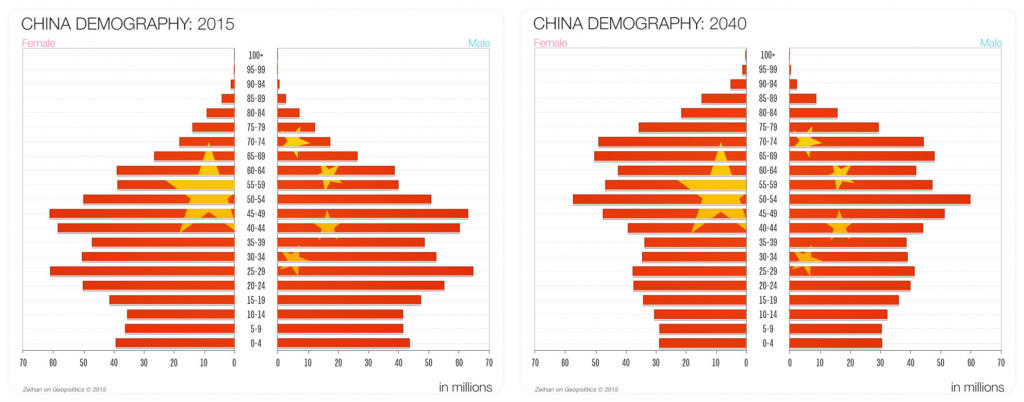Demographic Issues Effecting Chinese Military
China has long stood as the textbook example of unhealthy demographics. Implemented in 1979, the one-child policy has resulted in an increasingly top-heavy population pyramid, a declining birth rate well below replacement levels and, due to cases of infanticide which led to eventual exceptions allowing a second child for farmers if the first was a girl, a population of men 35 million larger than that of women. The policy has slowly been revised to be looser with the Chinese Communist Party (CCP) calling for a three-child cap this week, but due to a cultural shift in attitude towards children under the policy, as well as economic trends, it is doubtful much real change can be made. Official census numbers put the fertility rate (births per woman of child-bearing age) at 1.3 which is significantly lower than the 2.1 replacement rate. While estimates vary, some studies project China’s population will be cut in half by 2100.

The impacts of China’s demographic problems have already been felt by the People’s Liberation Army (PLA). An open report from 2012 found that around 70% of Chinese soldiers come from one-child families with the numbers being even higher for combat troops. In recent years, the military has expanded its efforts to recruit women and lowered requirements for fitness, weight, height and eyesight. With the army finding it hard to attract the increasingly urban and well-educated youth population, adjustments had to be made. These extend from a wider access to psychologists to loosening regulations on smartphone use.
China is not the only country to face recruitment challenges and the manpower problems has not yet been described as critical but it will unavoidably only get worse over the coming years and decades. Perhaps the issue will not be as critical for a future, more autonomous-tech-reliant force but with the extent of the demographic decline it is very unlikely that the PLA will feel the aftershocks of the 1979 one child policy lightly.

